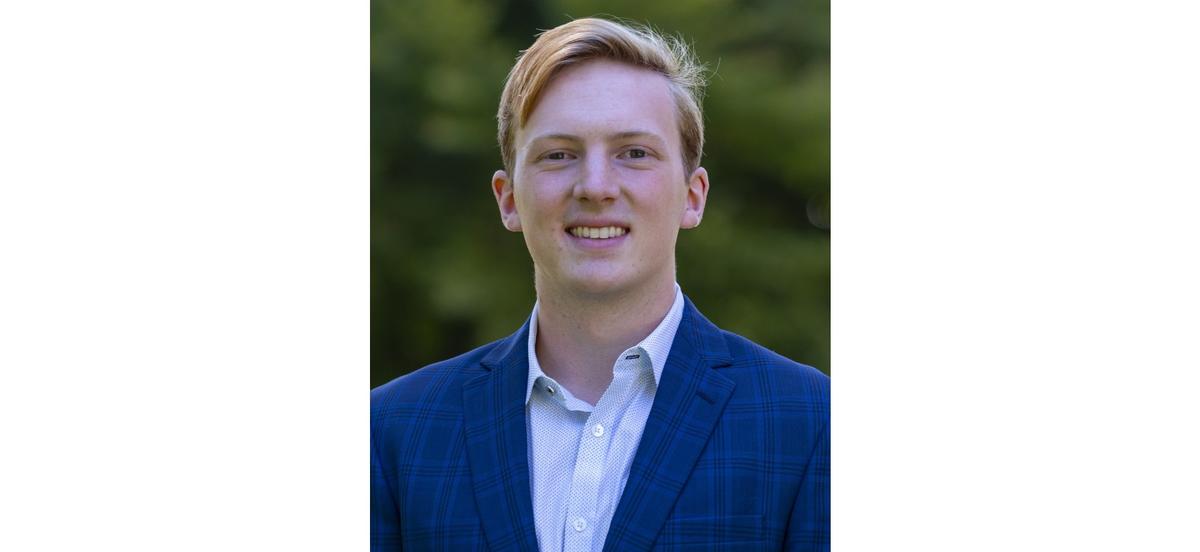Economics Spotlighted Student: Kirin Eicher '24

Details
Kirin's thesis studies the effects of right-to-work (RTW) legislation on workplace safety outcomes.
Kirin Eicher’s ’24 mother had been a Classics Major at Bryn Mawr College so when it came time for her son to look at colleges she was insistent Kirin visit Haverford College. The moment he stepped on the grounds there was a peaceful homey feel. It was spacious yet not too dense, and the people he talked to while touring were easy to talk to. He saw himself living here.
In high school Kirin favored the humanities but he had taken AP Economics and the topics intrigued him. He planned on exploring economics further in college and the classes he took got him hooked. Introduction to Economics followed by Analytical Methods for Economics, both taught by Prof. David Owens, exposed Kirin to the many applications of economics in real-world scenarios. He continued to gravitate toward economics classes. Subjects that previously seemed abstract became concrete and logical. He studied decision making, the roles markets play in central banking, programming, and how to work with data. In his classes he’s learned how to use statistical and data software programs such as Python, R, and STATA, which is the work he enjoys most.
For the first time the math side of economics clicked for Kirin was while taking Prof. Giri Parameswaran’s Intermediate Microeconomic Analysis class. Mathematics and statistics are used throughout economics and Kirin gets a thrill out of challenging himself, so he added more math and statistics to his curriculum. Prof. Richard Ball’s Statistical Methods in Economics class wowed Kirin. He also pointed out that Prof. Weiwen Miao’s Applied Multivariate Statistical Analysis class is the most rigorous class he’s taken. He learned a lot of in-depth statistical concepts that he’d never seen before. This spring Kirin matriculates with a major in economics and a minor in statistics.
For his thesis Kirin is “studying the effects of right-to-work (RTW) legislation on workplace safety outcomes. RTW laws limit the fundraising ability of unions, who often advocate for stronger worker protections and more stringent safety standards. Using workplace-level data, [he is] examining whether enacting a RTW law impacts rates of injury and lost days of work due to injury.”
Internships have enriched Kirin’s studies. The summer following his sophomore year, he was a Product Management intern for Philadelphia based ConnectDER. In addition to corresponding with clients and surveying competitors, Kirin headed market research efforts.
The following summer he was a Research Assistant for Prof. Richard Ball. He collaborated with the Data Editor’s office of the American Economics Association in implementing quality assurance checks on large data sets to ensure proper data structures.
Post-graduation Kirin will continue working with data. In their anti-trust division, he has accepted a Research Associate position with NERA in Washington, DC. He'll assist in conducting research on the effects of corporate mergers and acquisitions on the economy. Congratulations Kirin!
In addition to his academics, Kirin is on the tennis team, playing mostly doubles. Having originally played exclusively singles, he has had to retrain his brain and athletic instincts. It’s a completely different game, with different strategies and movements on the court. His teammates have been his best friends from the onset, making competitions so much fun and rewarding!




